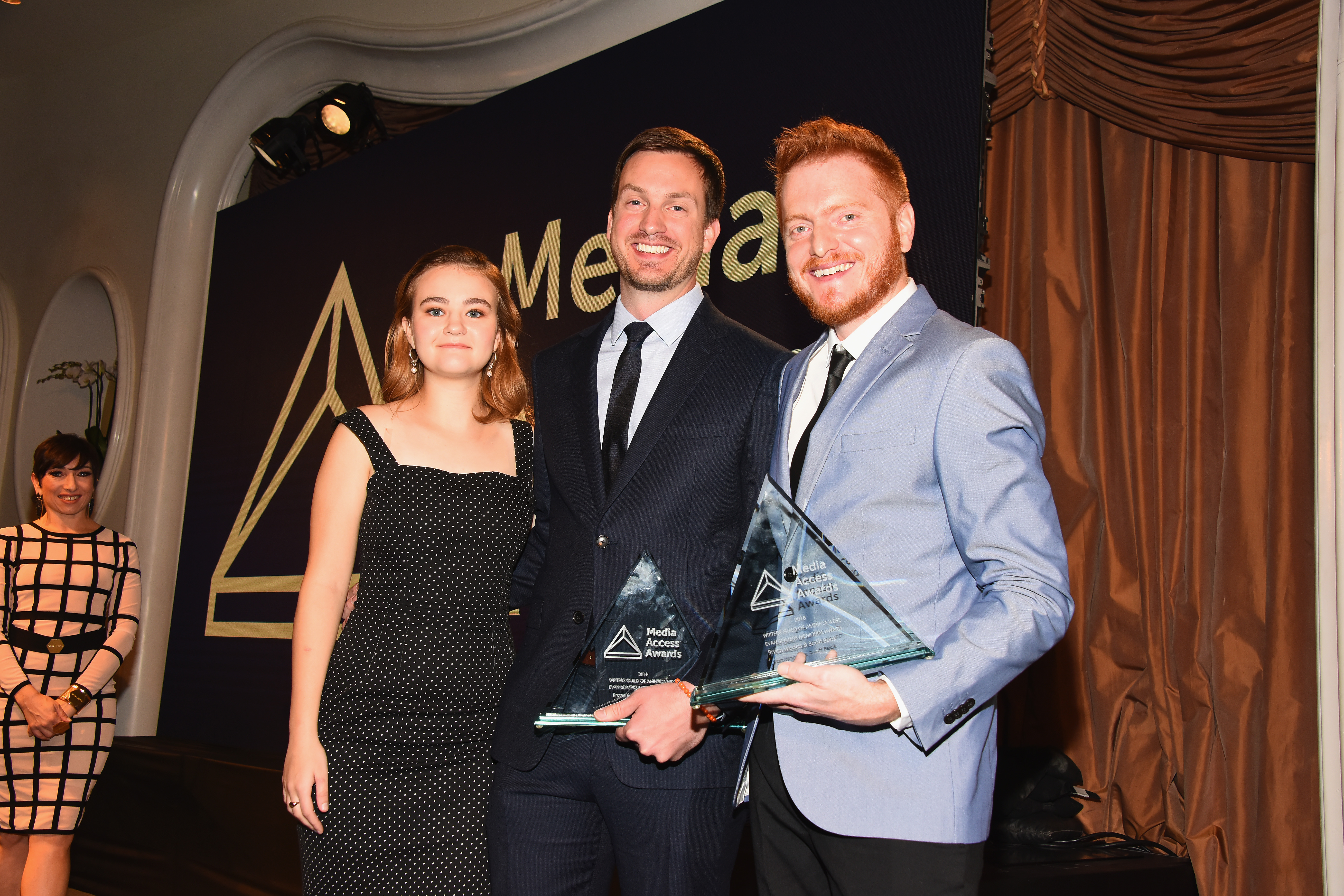Media Access Awards Recognizes Disability Representation on Screen
By Rachel Yang
LOS ANGELES (Variety.com) – Film and television often portray deaf characters as “special” or the last person to know what’s going on, Millicent Simmonds said, but for her character in “A Quiet Place,” her “deafness saves the day.”
Simmonds made her observations before presenting the WGAW Evan Somers Memorial Award Thursday morning to the film’s scripters as part of the Media Access Awards, which annually honor those who employ people with disabilities and represent the disability experience on screen. The event, produced by Deborah Calla and Allen Rucker, was held at the Beverly Hills Hotel.
The award went to John Krasinski (who also directed and starred), Scott Beck and Bryan Woods. “Millicent became the defining voice of ‘,’” Beck said. “The wide experience that she brought gave her character in the film an authenticity that we could only be a small part of on the page, and so in many ways, we consider Millie to be the fourth writer of ‘A Quiet Place.’”
Krasinski, who accepted via videotape, fought to cast Simmonds, a deaf actress, to play a deaf character.
Sasha Alpert and Megan Sleeper received the Casting Society of America Award; Simon Cowell earned the Visionary Award; the CSA’s Inclusion and Diversity Committee accepted the SAG-AFTRA Disability Awareness Award; and Tatiana Lee won the Christopher Reeve Acting Scholarship.
Gail Williamson, a talent agent who represents more than 400 performers with disabilities, received the Norman Lear-Geri Jewell Lifetime Achievement Award. She said there has been more progress in disability representation in the last five years than in the previous 20 years. Her ultimate goal is for such representation to be so widespread in every agency that it eliminates the need for her department.
Marlee Matlin presented the PGA George Sunga Award to Joshua Feldman, Shoshannah Stern and other producers of the TV series “This Close.” Feldman said he felt “starved” for deaf representation, which was why it was so special for him to work with Stern, Matlin and others.
The series is the first show written, produced, and created by deaf people. Stern said as a producer, she felt it important to hire people with disabilities, and the show employed 18 deaf people in front of and behind the camera, with Season 2 promising higher numbers.
Before the ceremony, Feldman told Variety, “People really respond to underrepresented groups when they’re represented on screen … it’s encouraging, even if it’s not your group, because it gives you hope,” Feldman told Variety. “People outside the community can tell the stories, but now this is new and exciting, there’s a big change when people are able to tell their own story.”
CJ Jones, who became the first black deaf actor to appear in a blockbuster film in 2017’s “Baby Driver.” He also recently appeared in Hulu’s “Castle Rock,” and will act in the upcoming “Avatar” sequels, for which he helped develop the Na’vi sign language.
“My talent has nothing to do with my color nor my hearing loss. I strongly advocate for diversity plus disability equals inclusion,” said Jones, who received the SAG-AFTRA Harold Russell Award at the event. “My vision is to facilitate that abundance of creativity, from all people without labels, working together to make incredible movies together, and watch the screen come alive with authentic roles for everyone.”
This was the first co-sponsored by Easterseals. Actor-performer Nic Novicki saluted Carl Hansen, who won this year’s Easterseals Disability Film Challenge for his film “Check Mate.”
The event was hosted by Logan Browning of “Dear White People” and comedian Drew Lynch.
Cowell, in the U.K. for work, taped a video messages expressing gratitude. The show opened with a salute from former Media Access emcee Jimmy Kimmell.

